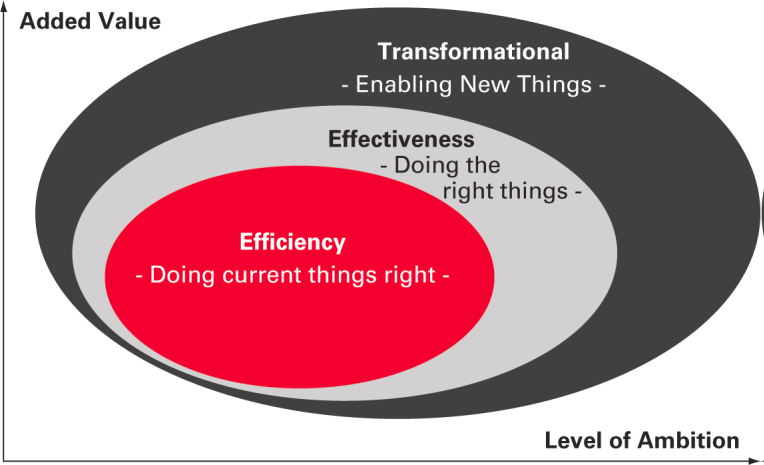The Business Purpose of BI Reporting
Author: Christian Screen | 7 min read | July 7, 2017
Business reporting begins with a goal, such as making a profit. In order to determine progress toward that goal, a method of measuring progress has to be agreed upon. The qualitative goal of making a profit has to be quantified. It might be a net increase in the checking account, or a generally accepted measure of profit, but it has to be established. Once established, the status of the goal and the progress toward it should be measured and reported.
This process of establishing, measuring, and reporting is at the heart of Business Intelligence (BI) systems. The difference between modern BI and previous systems of measurement and analysis is now it can all happen in real time. Pulling data, updating reports, and applying new information to dashboards and can all now be automated – today’s sales can be compared with the previous day’s sales at this time and last year’s sales without the manual labor of entering data and updating each report by hand.
Datavail has just published a white paper on what happens when business reporting channels break down due to continued reliance on spreadsheets and other data sources that are outside of the business intelligence system. Reporting Crisis: What Good is Business Intelligence with No Reports? is available for free download. It investigates the causes of BI reporting problems and a variety of solutions to those problems, including OBIEE, OBIA, Hyperion, and Tableau.
Let’s briefly look at some of the reasons business goals that can be achieved through the use of BI and analytics.
The Business Goals Behind BI Adoption
It would be nice if the primary reason for adopting a BI system was forward-thinking, proactive management. The reality is, organizations move to BI because the current systems are breaking down. The Reporting Crisis white paper explains what happens when reporting isn’t completed on time: crashing, bugs, queues, and delays. Those are fine reasons to have your reporting systems assessed and look at what’s available now with cloud BI suites.
Here are 10 proactive reasons for adopting BI systems:
1. Increase Efficiency, Improve Effectiveness, Transform business

2. Insights into business performance
BI systems can help you understand why you have problems and why your solutions are not working. You can flip numbers around and look at them from a variety of perspectives until you see, for example, that a menu item is terribly mispriced and has to go. These issues are a lot more obvious when you’re using BI rather than poring over spreadsheets.
3. Analyze financials and revenue
Monthly, quarterly, and annual reconciliations and closings happen routinely with a well-run BI system. They are not the focus any longer of everyone’s attention because they happen routinely in closed-loop BI systems. That leaves more time to run scenarios for improvement.
4. Analyze customer/vendor/product data
A business is as good as the cleanest, up-to-date data it has about its customers, vendors, and products. With a BI system, you can import from anything, into anything, and connect data in a way you can’t with manual systems. Insights gained from analyzing this multi-sourced data makes a business more effective and efficient.
5. Project future business trends
Unlike spreadsheet programs used to store and total data, BI systems are designed to analyze that data looking for trends and anomalies, then present those findings using data visualization to highlight the actionable information. The ability to predict the future includes such things as expected lifetime value of customer or the projected sales curve from opening a new outlet.
6. Make strategic decisions on business direction
BI is brilliant at analyzing the impacts of an acquisition, merger, or sale. The ability to import data quickly and easily, and run scenarios instantly, makes it easier to spot the best solution out of many possibilities.
7. Make strategic departmental decisions
BI systems are best when every department uses them. “Business intelligence organizations should provide information that can enable efficient and effective business decisions at all levels of the business,” says Jim Sullivan in an article on The Goals of Business Intelligence. BI’s ability to project information makes it ideal for assessing staffing needs, departmental planning, budgeting, and reporting.
8. Determine areas of improvement
In an article on Translating Business Goals to Analytics Goals, the author takes the goal of “increasing subscribers” and demonstrates how to turn it into quantifiable events tracked by BI, such as traffic to a subscribe page, number of subscribers, and sources of traffic and subscribers. Over time, the business learns it gets twice the conversion from paid traffic as non-paid traffic. They are able to calculate the change in signups resulting from pay-per-click spend and adjust the spend accordingly.
9. Increase shareholder value
Properly configured BI systems lead to operating efficiency and reduced waste. They lead to revenue improvement for existing operations and clear insight about expanding into new markets. They can drive product, service, and internal process improvement through customer polling and data analysis. The ability to reduce costs, increase revenues, and project the impact of growth together are a shareholder’s dream come true.
10. Paving a foundation for single source of truth
All growing businesses face the data quality problem – operational data is entered manually and is error prone, different departments may have different rules for entering data, there may be duplication of same data entity. A properly configured BI system can give you insights into such data quality problems, thus laying a foundation for an MDM solution, which in turn will feed clean data to the BI system to drive accurate decision making.
BI Applications that Empower Organizational Excellence
Datavail recommends Oracle BI products for the purposes of reporting for finance and HR, and for data visualization. Oracle is the market leader in BI and has developed many of the data management applications that underpin a business intelligence suite.
The following systems are recommended:
- Oracle Business Intelligence Applications (OBIA)
OBIA is a pre-packed solution for enterprise analytics including a data warehouse, ETL logic, dashboards, and reports. The OBIA ETL solution is capable of retrieving data consistently from other systems, including Customer Relationship Management (CRM) systems, Enterprise Resource Planning (ERP) systems, and database systems such as SQL Server.
- Oracle Business Intelligence Enterprise Edition (OBIEE)
OBIEE pulls data from multiple sources and displays reporting through customizable dashboards that are mobile-device friendly. OBIEE offers data control with API and configuration extensibility for seamless incorporation into any infrastructure. - Tableau
Tableau makes is easy to explore and analyze data with advanced analytics. It accepts data from hundreds of different source files and turns it into compelling visualizations, dashboards and stories for clear, flexible reporting. - Hyperion Reporting
Oracle Hyperion Financial Reporting is a sophisticated financial management and reporting tool. It provides a stunning graphical interface that enables rapid creation of reports and can combine grids of data and text, charts, graphs, and images. It has a library of reusable report components that simplifies the process of building and maintaining financial reports.
Datavail Helps Organizations Install and Operate Successful BI Systems
Datavail provides solutions for enterprises that want to break out of the reporting logjam and realize the benefits of BI. Our process includes discovery and assessment to review the current system, the problem the organization is experiencing, and a variety of alternatives for making the desired improvements.
We then assist with the installation of the desired solution, including planning, testing, data import, and report generation. We help companies migrate existing systems to upgraded solutions, or transfer data to a new system. We work with your in-house team to train on the new system, establish monitoring and practice troubleshooting problems.
Datavail’s consultants have collectively performed hundreds of projects over the past decade spanning a wide range of software platforms and technology stacks. Our expert BI consultants routinely perform BI support services for our clients. Contact Datavail today for more information on accelerating your organization’s use of BI and for Oracle analytics solutions.
Datavail is a specialized IT services company focused on Data Management with solutions in BI/DW, analytics, database administration, custom application development, and enterprise applications. We provide both professional and managed services delivered via our global delivery model, focused on Microsoft, Oracle, and other leading technologies.
